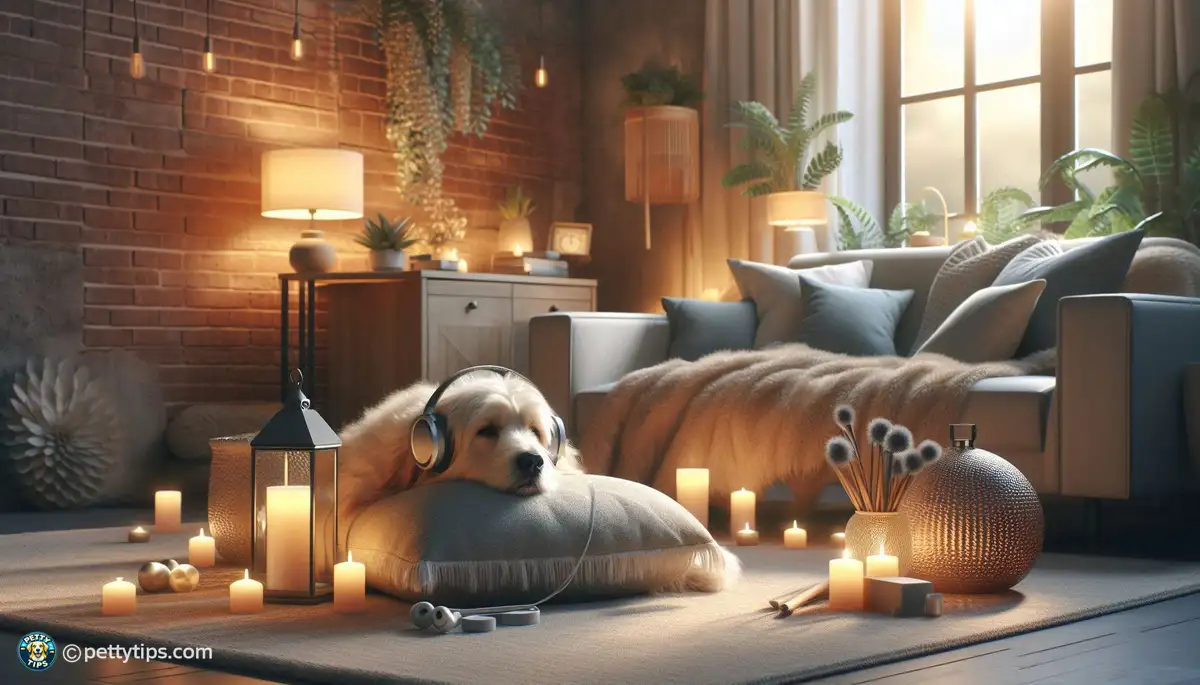
Building Your Own Agility Course: A Guide for Pet Owners
Massimo De Nardi - Sep 16, 2024 - 6 min read


separation anxiety in dogs is a common behavioral issue that can manifest in various ways. Recognizing the signs is the first step in effectively managing this condition. Some common signs include excessive barking or howling, destructive behavior, pacing, panting, and house soiling. These behaviors often occur when the dog is left alone or separated from their owner. It's essential to differentiate separation anxiety from other behavioral problems, such as boredom or lack of training.
Understanding the root causes of separation anxiety can help pet owners address the issue more effectively. There isn't a single cause for separation anxiety, as it can result from a combination of factors. Some dogs may develop separation anxiety due to past trauma or abandonment, while others may have a genetic predisposition to the condition. Changes in routine, such as a new home or schedule, can also trigger separation anxiety in some dogs. Additionally, dogs that are overly dependent on their owners or lack proper socialization may be more prone to developing separation anxiety.
Separation anxiety can have a significant impact on a dog's overall well-being if left untreated. Beyond the obvious stress and anxiety experienced by the dog, it can lead to destructive behaviors that pose risks to their safety and health. Dogs with severe separation anxiety may injure themselves attempting to escape or engage in harmful behaviors like excessive licking or chewing. Furthermore, chronic stress can weaken the dog's immune system and increase their susceptibility to other health issues. It's crucial for pet owners to address separation anxiety promptly to improve their dog's quality of life.
One effective strategy for managing separation anxiety is gradually increasing the dog's tolerance to being alone. Start by leaving the dog alone for short periods, gradually increasing the duration over time. This helps desensitize the dog to your absence and teaches them that being alone is not a cause for panic. Use positive reinforcement techniques, such as treats or toys, to create positive associations with alone time.
Keeping the dog mentally and physically stimulated can help alleviate separation anxiety. Provide plenty of interactive toys and puzzles to keep the dog occupied while you're away. Consider using food-dispensing toys or frozen treats to keep them engaged for longer periods. Additionally, regular exercise and mental stimulation through activities like training sessions or scent work can help tire out the dog and reduce anxiety.
Dogs thrive on routine, so establishing a consistent schedule can help reduce separation anxiety. Stick to a regular feeding and walking schedule, and try to keep departures and arrivals as predictable as possible. Consistency provides a sense of security for the dog and helps them feel more at ease when left alone. Avoid making a big fuss when leaving or returning home, as this can exacerbate separation anxiety by reinforcing the dog's distress.
Creating a comfortable and safe environment for your dog is essential for managing separation anxiety. Designate a specific area of the home where the dog feels secure, such as a cozy crate or a comfortable bed in a quiet corner. Make sure this space is free from potential hazards and includes familiar items like toys or blankets that carry your scent. Providing a safe haven gives the dog a place to retreat to when feeling anxious.
Implementing calming techniques can help soothe a dog experiencing separation anxiety. Consider using pheromone diffusers or sprays that mimic the natural calming scents produced by nursing mother dogs. Some dogs may benefit from calming supplements or medications prescribed by a veterinarian. Additionally, playing soft music or leaving the television on can provide auditory stimulation that distracts the dog and helps mask outside noises that may trigger anxiety.
Punishing a dog for exhibiting separation anxiety behaviors can worsen the problem and damage the bond between pet and owner. Instead of scolding or reprimanding the dog, focus on positive reinforcement and reward-based training methods. Punishment only serves to increase the dog's anxiety and can lead to other behavioral issues. Remain patient and understanding, and seek professional guidance if needed to address the underlying causes of the dog's anxiety.
If separation anxiety persists despite your efforts, it's essential to seek guidance from a veterinarian. A thorough medical evaluation can rule out any underlying health issues contributing to the dog's anxiety. Additionally, a veterinarian can provide recommendations for behavior modification techniques or prescribe medication to help manage the dog's symptoms. Working closely with a veterinarian ensures a holistic approach to addressing the dog's separation anxiety.
Behavior modification therapy, conducted by a certified professional dog trainer or behaviorist, can be highly effective in treating separation anxiety. These professionals can assess the dog's behavior and develop a personalized treatment plan to address their specific needs. Behavior modification techniques may include desensitization and counterconditioning exercises, as well as teaching the dog coping mechanisms to manage their anxiety.
Joining support groups or online forums for pet owners dealing with separation anxiety can provide valuable support and guidance. Sharing experiences with others facing similar challenges can offer emotional support and practical advice for managing the condition. Additionally, there are numerous resources available, such as books, articles, and online courses, that provide information and strategies for coping with separation anxiety in dogs.
In conclusion, separation anxiety is a common issue that many dogs experience, but with patience, understanding, and effective management strategies, it can be successfully addressed. By recognizing the signs of separation anxiety, building independence, creating a safe environment, and seeking professional help when needed, pet owners can help their dogs overcome their anxiety and lead happier, healthier lives. Remember, every dog is unique, so finding the right combination of strategies may take time and experimentation. With dedication and persistence, you can make a positive difference in your dog's well-being.